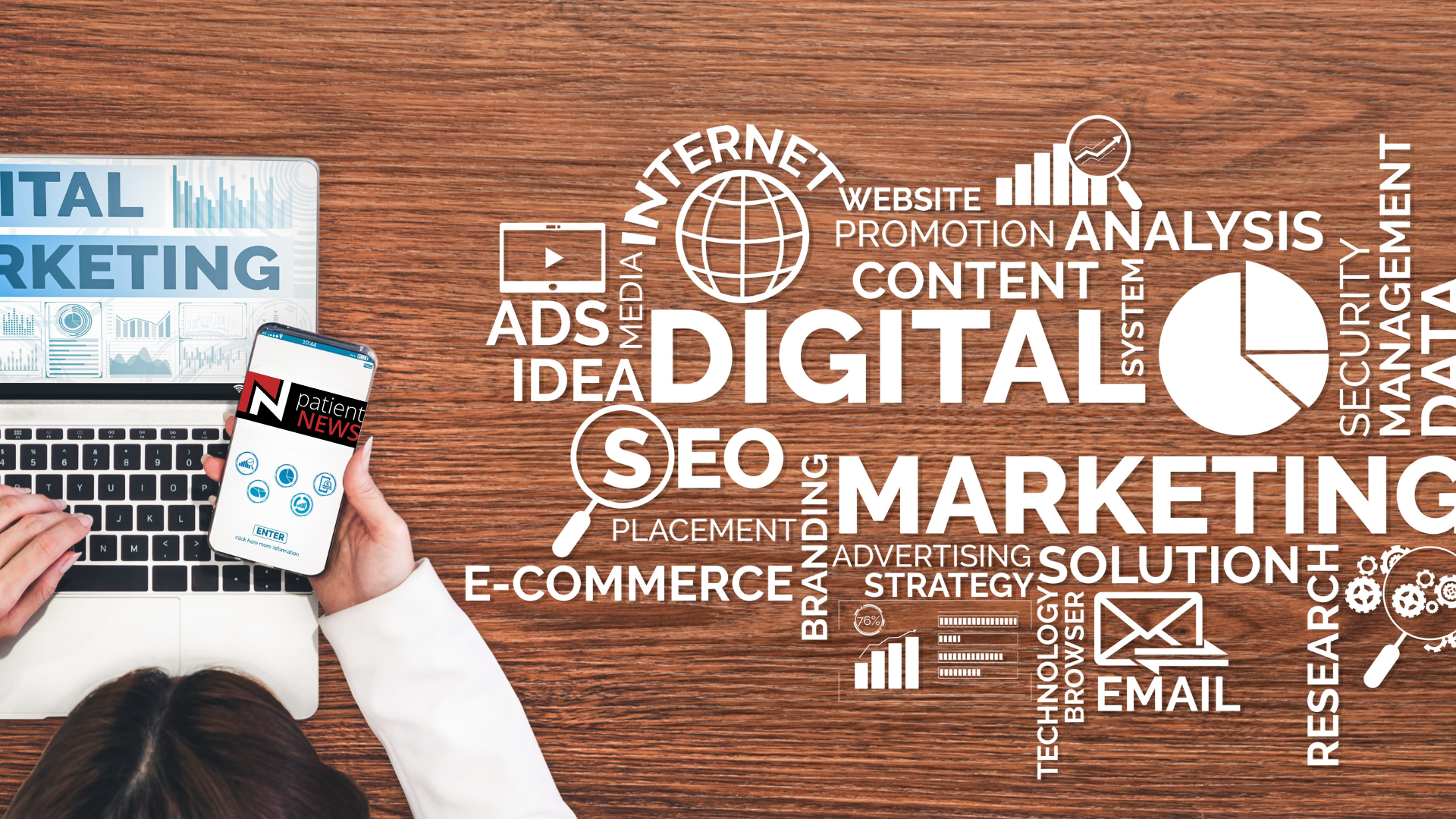What Does A Digital Marketing Agency Do
Understanding Digital Marketing
Definition of Digital Marketing
Digital marketing is the use of the internet and online tools to promote products or services. It includes various digital marketing channels like social media, email, and websites. This approach helps businesses reach a larger audience and connect with customers in real-time.
Importance in the Modern Business Landscape
In today's world, digital marketing is crucial for success. Here are some reasons why:
- Wider Reach: Businesses can connect with customers globally.
- Cost-Effective: It often costs less than traditional marketing methods.
- Real-Time Feedback: Companies can see how well their campaigns are doing instantly.
Digital marketing tools allow businesses to track their performance and make quick changes to improve results.
Key Components of Digital Marketing
Digital marketing includes several key parts:
- Search Engine Optimization (SEO): Helps websites rank higher in search results.
- Content Marketing: Focuses on creating valuable content to attract customers.
- Social Media Marketing: Uses platforms like Facebook and Instagram to engage with users.
- Email Marketing: Sends targeted messages to potential customers.
- Pay-Per-Click (PPC) Advertising: Involves paying for ads that appear in search results.
Services Offered by Digital Marketing Agencies
Digital marketing agencies provide a variety of services to help businesses grow online. These services are essential for reaching customers in today’s digital world. Here are some key services offered by these agencies:
Search Engine Optimization (SEO)
- Helps websites rank higher on search engines.
- Involves using keywords and improving site structure.
- Aims to increase organic traffic to the website.
Content Marketing
- Focuses on creating valuable content to attract customers.
- Includes blogs, videos, and infographics.
- Helps build trust and authority in the industry.
Social Media Management
- Manages a brand’s presence on platforms like Facebook and Instagram.
- Engages with followers and responds to comments.
- Creates posts that promote products or services.
Email Marketing
- Sends targeted emails to potential and existing customers.
- Aims to inform, engage, and convert leads into sales.
- Involves crafting catchy subject lines and useful content.
Digital marketing agencies play a crucial role in helping businesses connect with their audience. By using various strategies, they ensure that brands are visible and engaging in the online space. For example, a franchise marketing agency can help franchises reach their target market effectively.
The Role of SEO in Digital Marketing
On-Page SEO Techniques
On-page SEO is all about optimizing the content on your website. Here are some key techniques:
- Use relevant keywords in your titles and headings.
- Write clear and engaging meta descriptions.
- Ensure your content is easy to read and understand.
Off-Page SEO Strategies
Off-page SEO focuses on improving your site's reputation and authority. Important strategies include:
- Building quality backlinks from other websites.
- Engaging with your audience on social media.
- Getting listed in online directories.
Technical SEO Essentials
Technical SEO ensures that your website is set up correctly for search engines. Key aspects include:
- Making sure your site loads quickly.
- Ensuring it is mobile-friendly.
- Using a clear URL structure.
SEO is crucial for getting your website high on search results. It helps potential customers find you easily, which can lead to more traffic and sales.
Content Marketing Strategies
Creating Engaging Content
Creating content that grabs attention is key. Engaging content keeps your audience interested and encourages them to share. Here are some tips to create engaging content:
- Use clear and simple language.
- Tell stories that connect with your audience.
- Include visuals like images or videos to make it more appealing.
Content Distribution Channels
Once you have great content, you need to share it. Here are some popular channels to distribute your content:
- Social media platforms like Facebook and Instagram.
- Email newsletters to reach your subscribers.
- Blogs and websites to attract organic traffic.
Measuring Content Performance
To know if your content is working, you need to measure its performance. Here are some important metrics to track:
- Number of views or reads.
- Engagement rates, like comments and shares.
- Conversion rates, which show how many people took action after reading your content.
Understanding how your content performs helps you improve and create even better content in the future.
Social Media Management
Developing a Social Media Strategy
Creating a strong social media strategy is essential for any business looking to enhance its social media presence. Here are some key steps to consider:
- Define your goals: What do you want to achieve? More followers, engagement, or sales?
- Know your audience: Understand who your target audience is and what platforms they use.
- Choose the right platforms: Not all social media platforms are the same. Pick the ones that fit your business best.
Engaging with Your Audience
Engagement is crucial in social media management. Here are some effective ways to connect with your audience:
- Respond to comments: Always reply to comments and messages to show you care.
- Post regularly: Keep your audience engaged by posting content consistently.
- Use polls and questions: Encourage interaction by asking your followers for their opinions.
Analyzing Social Media Metrics
To improve your social media efforts, you need to track your performance. Here are some important metrics to look at:
- Engagement rate: How many people are liking, sharing, or commenting on your posts?
- Follower growth: Are you gaining or losing followers over time?
- Reach and impressions: How many people are seeing your content?
Social media agencies play a vital role in helping businesses navigate the complex world of social media. By developing effective strategies and engaging with audiences, they can significantly boost a brand's online presence.
Email Marketing Campaigns
Building an Email List
Creating a strong email list is the first step in any successful email marketing campaign. Here are some effective ways to build your list:
- Offer incentives like discounts or free resources to encourage sign-ups.
- Use social media to promote your email list and reach a wider audience.
- Place sign-up forms on your website to make it easy for visitors to join.
Crafting Effective Email Content
Once you have a list, the next step is to create emails that grab attention. Consider these tips:
- Write clear and catchy subject lines to increase open rates.
- Keep your content short and to the point, focusing on what matters to your audience.
- Include a strong call-to-action (CTA) that tells readers what to do next.
Analyzing Email Campaign Performance
To know if your email campaigns are working, you need to track their performance. Here’s how:
- Monitor open rates to see how many people are reading your emails.
- Check click-through rates to understand how many are engaging with your content.
- Use feedback and data to improve future campaigns.
Email marketing is a powerful tool that can help businesses generate web traffic and leads. By building a solid email list, crafting engaging content, and analyzing results, companies can connect with their audience effectively.
Pay-Per-Click Advertising
Pay-Per-Click (PPC) advertising is a powerful tool in digital marketing that allows businesses to reach their target audience quickly. PPC can perform well when done right, making it a popular choice for many companies.
Understanding PPC Basics
PPC is a model where advertisers pay a fee each time their ad is clicked. Here are some key points to understand:
- Instant Visibility: Ads appear at the top of search results, giving immediate exposure.
- Targeted Audience: You can choose who sees your ads based on demographics, interests, and behaviors.
- Budget Control: You set a budget, so you only spend what you can afford.
Creating Effective Ad Campaigns
To create a successful PPC campaign, follow these steps:
- Choose the Right Keywords: Research and select keywords that your audience is searching for.
- Write Compelling Ad Copy: Create ads that grab attention and encourage clicks.
- Set Up Landing Pages: Ensure that the page users land on is relevant and user-friendly.
Measuring PPC Success
To know if your PPC campaign is working, you need to track its performance. Here are some important metrics to consider:
- Click-Through Rate (CTR): This shows how many people clicked your ad compared to how many saw it.
- Conversion Rate: This measures how many clicks led to a desired action, like a purchase.
- Return on Investment (ROI): This helps you understand if your ad spend is worth it.
PPC advertising can be a game-changer for businesses looking to grow quickly. By understanding the basics and measuring success, companies can make informed decisions to improve their campaigns.
The Importance of Analytics in Digital Marketing
In the world of digital marketing, analytics play a crucial role in understanding how well your strategies are working. By analyzing data, businesses can make informed decisions that lead to better results. Here are some key points to consider:
Tracking Key Performance Indicators (KPIs)
- KPIs help measure the success of your marketing efforts.
- Common KPIs include website traffic, conversion rates, and customer engagement.
- Regularly tracking these indicators allows for timely adjustments to strategies.
Using Analytics Tools
- Tools like Google Analytics provide valuable insights into user behavior.
- These tools can show where your visitors are coming from and what they are interested in.
- Utilizing these tools helps in optimizing marketing campaigns effectively.
Interpreting Data for Decision Making
- Data interpretation is essential for understanding trends and patterns.
- It helps identify what works and what doesn’t in your marketing strategy.
- Making data-driven decisions can lead to improved marketing outcomes.
In summary, analytics are not just numbers; they are the key to unlocking the potential of your digital marketing efforts. By understanding and utilizing analytics, businesses can enhance their strategies and achieve greater success.
Choosing the Right Digital Marketing Agency
Identifying Your Business Needs
To find the right digital marketing agency, start by understanding what your business needs. Consider the following:
- What are your marketing goals?
- Which services do you require? (SEO, social media, etc.)
- What is your target audience?
Evaluating Agency Expertise
Once you know your needs, look for agencies that have the right skills. Here are some tips:
- Check their past work and case studies.
- Read reviews and testimonials from other clients.
- Ask about their team’s qualifications and experience.
Considering Budget and ROI
Budget is a key factor when choosing an agency. Make sure to:
- Set a clear budget for your marketing efforts.
- Ask about pricing structures and what’s included.
- Consider the potential return on investment (ROI) from their services.
Finding the right digital marketing agency can make a big difference in your business's success. Take your time to research and choose wisely.
Emerging Trends in Digital Marketing
The Rise of Artificial Intelligence
Artificial Intelligence (AI) is changing how businesses connect with customers. AI tools can analyze data quickly, helping marketers make better decisions. Some key uses of AI in digital marketing include:
- Chatbots for customer service
- Personalized content recommendations
- Predictive analytics for future trends
The Impact of Voice Search
Voice search is becoming more popular as people use smart speakers and voice assistants. This trend is important because:
- It changes how people search for information
- Businesses need to optimize their content for voice queries
- Long-tail keywords are more effective for voice search
The Growth of Video Content
Video content is taking over the internet. It’s engaging and easy to share. Here are some reasons why video is essential:
- Videos can explain complex ideas simply.
- They are more likely to be shared on social media.
- People remember video content better than text.
As digital marketing evolves, staying updated with these trends is crucial for success. Embracing new technologies and strategies can help businesses reach their goals.
Conclusion
In summary, a digital marketing agency plays a key role in helping businesses grow online. They use different tools and strategies to reach more people and connect with customers. From social media to search engines, these agencies know how to make a brand stand out. By working with a digital marketing agency, companies can improve their online presence and attract more customers. This partnership can lead to better sales and a stronger brand image, making it a smart choice for any business looking to succeed in the digital world.
Share:
Stay In The Know!
Join 20,000 dental colleagues today!
Subscribe to our weekly updates, and/or request a free brochure and product samples.




